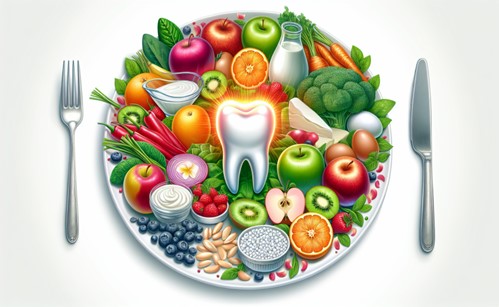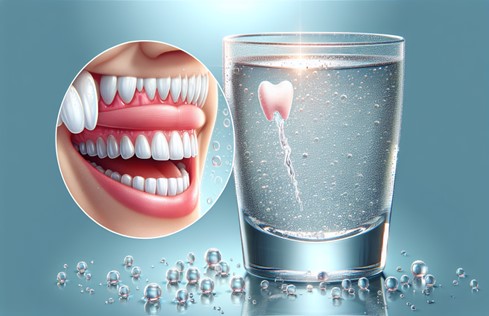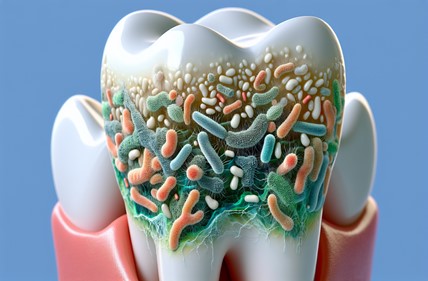Dr. Lloyd Harris DDS, a California-based dentist, knows that dental plaque is a term you’ve likely heard during those dreaded cavity and gum disease warnings at the dentist’s office. But what exactly is plaque, and why should you care about keeping it under control? The following article breaks down what plaque is, why it develops, and, most importantly, how you can keep it from wreaking havoc on your teeth and gums. Get ready for a crash course in dental care that can save your smile.
Lloyd Harris Discusses the Basics of Dental Plaque
Dental plaque, also known as tooth plaque, is a biofilm composed of layers of bacteria that adhere to teeth. It begins to accumulate on teeth within 20 minutes after eating, and if not promptly and effectively removed, can lead to tooth decay and gum disease. The bacteria in plaque flourish on sugars and food debris, producing acids that attack the tooth enamel, leading to cavities.
The more plaque accumulates, the more it hardens and turns into tartar buildup. Tartar, also known as dental calculus, forms a protective shield for bacteria, making plaque more difficult to remove. This hardened plaque can only be removed by a dental professional, emphasizing the importance of regular dental visits.
Key Factors Contributing to Excessive Plaque Buildup
Lloyd Harris DDS explains that understanding why plaque builds up excessively can help you take the right steps to prevent it.
Poor Oral Hygiene Practices
Brushing and flossing regularly are essential habits to practise good oral hygiene. However, improper, or inadequate oral hygiene practices can contribute significantly to plaque buildup. Infrequent or incorrect brushing allows the bacteria in our mouths to feast on the leftover food particles, leading to plaque formation. Brushing less than twice a day or not long enough each time gives plaque a chance to build up on the teeth.
Not flossing regularly is another contributor. Flossing helps remove the food particles and plaque from between your teeth and along the gum line, areas that the toothbrush can’t reach.
Dietary Choices
Your diet also plays a significant role in plaque formation. Foods high in sugars and starches are the biggest culprits. Lloyd Harris says that these include candies, pastries, soft drinks, and even some fruits. The bacteria in your mouth thrive on these sugars, producing acids that lead to tooth decay and gum disease.
Biological Factors
Everyone has bacteria in their mouth, but factors like the composition of your saliva and the overall balance of bacteria can influence how much plaque forms. Some people may be more prone to plaque buildup due to their biological makeup.
Dry Mouth
A dry mouth provides a perfect environment for plaque to thrive. Saliva helps wash away food particles and neutralize acids produced by bacteria. If you have dry mouth, often caused by certain medications or health conditions like diabetes, you might experience increased plaque buildup.
Lifestyle Factors
Our lifestyle choices significantly impact our oral health. Certain habits can lead to a plethora of oral health issues, including increased plaque buildup.
Smoking and Tobacco Use
Smoking and tobacco use are significant contributors to plaque accumulation and gum disease. Smokers are more likely to produce bacterial plaque, which can lead to gum disease. The chemicals in tobacco products alter saliva flow in the mouth, facilitating the adherence of oral bacteria to teeth and gums, leading to the formation of plaque.
Alcohol Consumption
Lloyd Harris DDS explains that just like smoking, excessive alcohol consumption can harm your oral health. Alcohol can lead to a dry mouth, reducing saliva production necessary for washing away bacteria and food particles, leaving the mouth more susceptible to plaque formation.
Preventive Measures and Oral Hygiene Tips
To combat plaque, it’s crucial to adopt a thorough oral hygiene routine.
Brushing and Flossing
Brushing and flossing are your first line of defense against plaque. However, the effectiveness of these practices hinges on the correct techniques. Brushing properly starts with cleaning the outer surfaces of your teeth, both upper and lower, individually to ensure no area is missed. To effectively remove plaque at the gumline, one should brush at a 45-degree angle using short, tooth-wide strokes.
Flossing is another crucial aspect of dental hygiene. For effective flossing, follow these steps:
- Use about 18 inches of floss.
- Gently guide the floss between the teeth towards the gum line.
- Curve the floss around each tooth.
- Move the floss up and down to remove plaque and particles.
Mouthwash
Lloyd Harris DDS says that an antibacterial or fluoride mouthwash can help reduce plaque and gingivitis and freshen breath. Use it after brushing and flossing to reach areas that might have been missed but remember that mouthwash is not a substitute for brushing and flossing.
Diet Modifications for Plaque Prevention
 A balanced diet can play a significant role in preventing plaque formation. Adequate intake of calcium and vitamin D is linked to reduced dental plaque, especially when adhering to dietary recommendations for these nutrients. Constant snacking or sipping on sugary drinks can provide a continual food source for bacteria, leading to plaque build-up and cavities.
A balanced diet can play a significant role in preventing plaque formation. Adequate intake of calcium and vitamin D is linked to reduced dental plaque, especially when adhering to dietary recommendations for these nutrients. Constant snacking or sipping on sugary drinks can provide a continual food source for bacteria, leading to plaque build-up and cavities.
To prevent this, incorporate fibrous fruits and vegetables into your diet. Lloyd Harris also notes that they can increase saliva production, which naturally washes away food particles and helps prevent plaque formation.
Staying Hydrated and Drinking Plenty of Water
 Staying hydrated and drinking plenty of water can assist in maintaining a cleaner mouth. Water aids in diluting acids and washing away food residues. Drinking water after meals can lessen the erosive effects of acids and helps prevent tooth decay by cleaning the mouth.
Staying hydrated and drinking plenty of water can assist in maintaining a cleaner mouth. Water aids in diluting acids and washing away food residues. Drinking water after meals can lessen the erosive effects of acids and helps prevent tooth decay by cleaning the mouth.
Regular Dental Visits
Maintaining regular dental visits is key to good oral health, as they provide professional cleaning and the opportunity for early detection of potential issues like gum disease and dental decay.
Dentists offer personalized advice and support tailored to an individual’s specific oral health needs. So, don’t put off your dental visit. Remember, prevention is always better than cure.
Summary
Dental plaque is a common oral health issue that arises due to various factors like poor oral hygiene, diet, biological factors, and certain lifestyle choices. However, with a proper understanding of these factors and implementing preventive measures, plaque buildup can be effectively controlled.
Remember, the best defence against plaque is a consistent oral hygiene routine coupled with professional dental care.








